It’s safe to say that the U.S.-Russia reset is now dead and buried. It was already losing steam, in part because the low-hanging fruit it offered had already been harvested—and because many of the “concessions” made by both sides at the high point of the reset in 2010 and 2011 were decisions that Moscow or Washington would have taken anyway. The Obama administration’s decision, for instance, to cancel the Bush administration’s plan to deploy a missile defense system in Poland and the Czech Republic was guided as much by concerns about cost and technical infeasibility as it was about improving […]
War & Conflict Archive
Free Newsletter
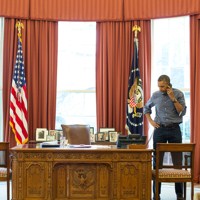
Russian troops pouring into Ukraine last weekend were one more wake-up call to America about the scale of Moscow’s ambition. The first came with Stalin’s creation of satellite states in Eastern Europe after World War II; the second was the 1979 Soviet invasion of Afghanistan. Each step reminded Americans that Moscow felt that it had an inherent right to dominate surrounding regions and had no qualms about using force to see that it got what it wanted. Both of these episodes led to American military build-ups and strengthened resolve, thus restoring the containment of Russia. But this latest wake-up may […]
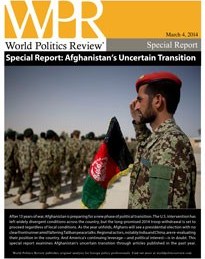
After 13 years of war, Afghanistan is preparing for a new phase of political transition. The U.S. intervention has left widely divergent situations across the country, but the long-promised 2014 troop withdrawal is set to proceed regardless of local conditions. As the year unfolds, Afghans will see a presidential election with no clear frontrunner amid faltering Taliban peace talks. Regional actors, notably India and China, are re-evaluating their position in the country. And America’s continuing leverage—and political interest—is in doubt. This special report examines Afghanistan’s uncertain transition through articles published in the past year. Subscribers can download this report by […]
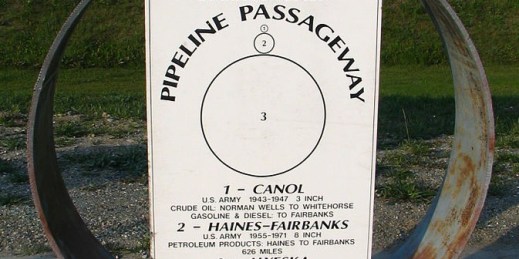
Russia’s military and diplomatic opposition to the overthrow of former Ukrainian President Viktor Yanukovych has raised concern that Russia might cut off Ukraine’s gas as it has in previous disputes, disrupting broader European energy markets. In an email interview, Keith Smith, a former U.S. ambassador to Lithuania who is currently a distinguished resident fellow at the Center for European Policy Analysis, explained how Russia’s leverage over energy markets has changed since it last cut off gas supplies to Ukraine. The views expressed here are Smith’s and do not represent those of any organization. WPR: How has Ukraine’s position in the […]
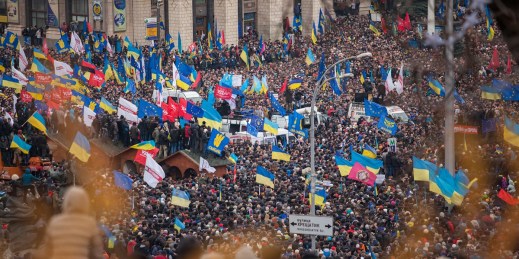
The Russian invasion of Ukraine is an accomplished fact, but many questions remain unanswered regarding the crisis. Perhaps the most important of these are how far Russia will go, what steps the West can take to resist Russian belligerence and what economic consequences will ensue from Russia’s actions. Thus far, Russian forces have only occupied the Crimean peninsula. While it is possible they will go no farther, it remains unclear under what conditions Russian troops would end their occupation. Moscow might decide to occupy the region for a while simply to pry various concessions from Kiev, such as a pledge […]
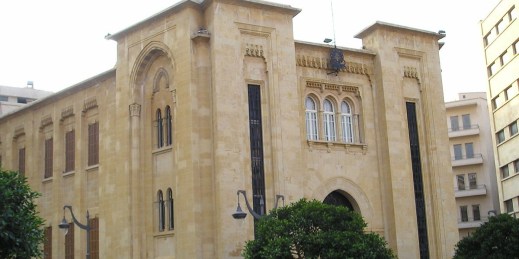
On Feb. 15, Lebanon formed a new government after 11 months of political deadlock. Yet the real significance and impact this will have on Lebanon’s political stability is very much unclear. The new Cabinet allows Lebanon’s main parties—the Shiite militant group Hezbollah and the Sunni Future Movement—to resume their political fight inside the government rather than on the street, although one does not preclude the other. However, several points of contention remain between the two sides that could obstruct further progress. For the new Cabinet to start addressing a host of pressing challenges, including the election of a new president […]
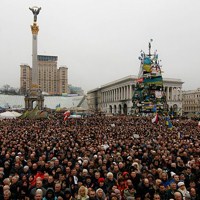
The Ukrainian crisis has aroused an ugly array of thugs, from the snipers who fired on protesters in Kiev to pro-Russian biker gangs. But numerous multilateral organizations have been implicated too. The crisis began when former Ukrainian President Viktor Yanukovych nixed a trade deal with the European Union in November. Three months later, with Yanukovych in exile and Russia having abruptly seized control of Crimea over the weekend, many more international institutions risk being entangled in the conflict. They range from the Group of Eight (G-8) and United Nations to the Organization for Security and Cooperation in Europe (OSCE). A […]
